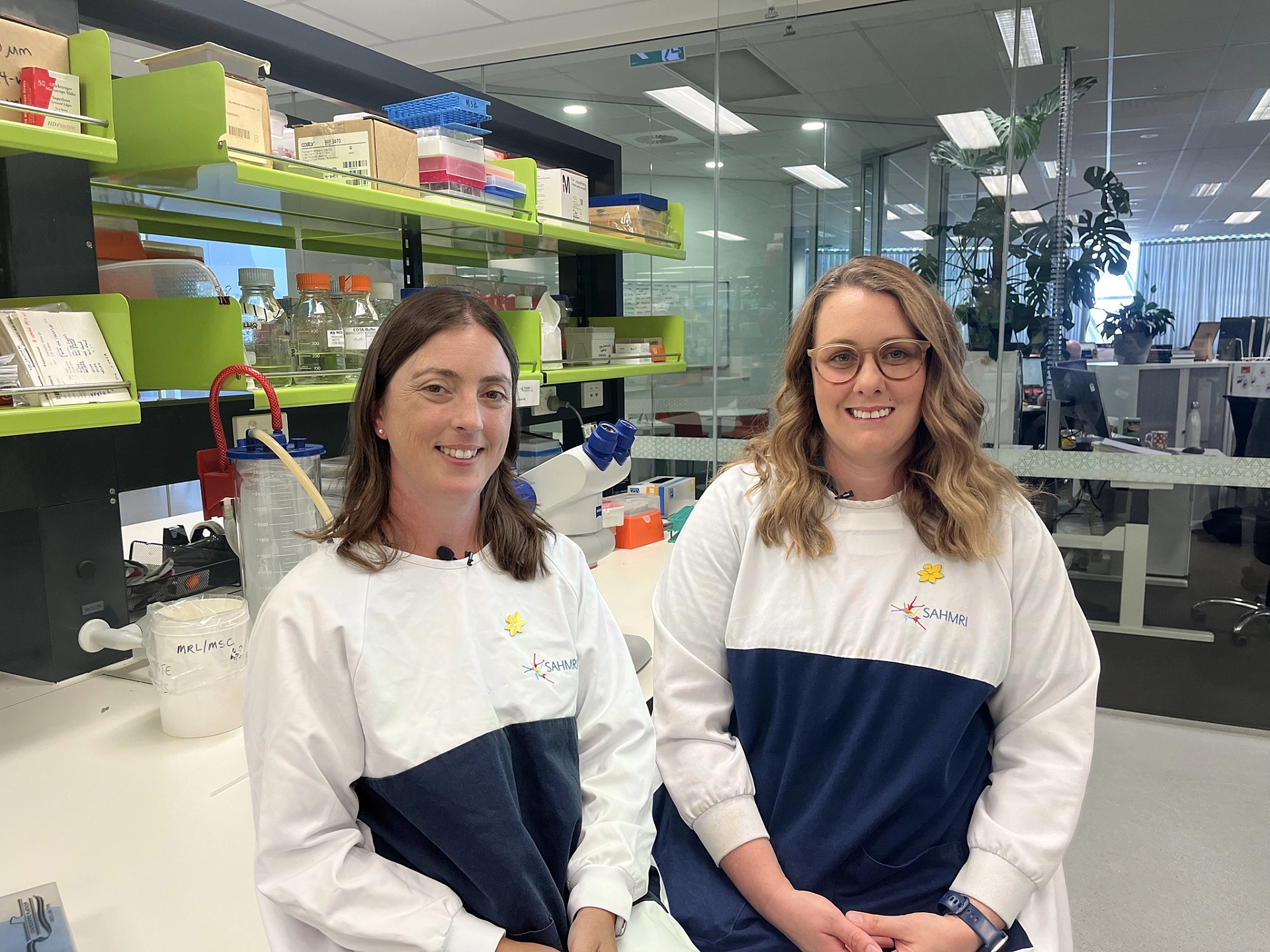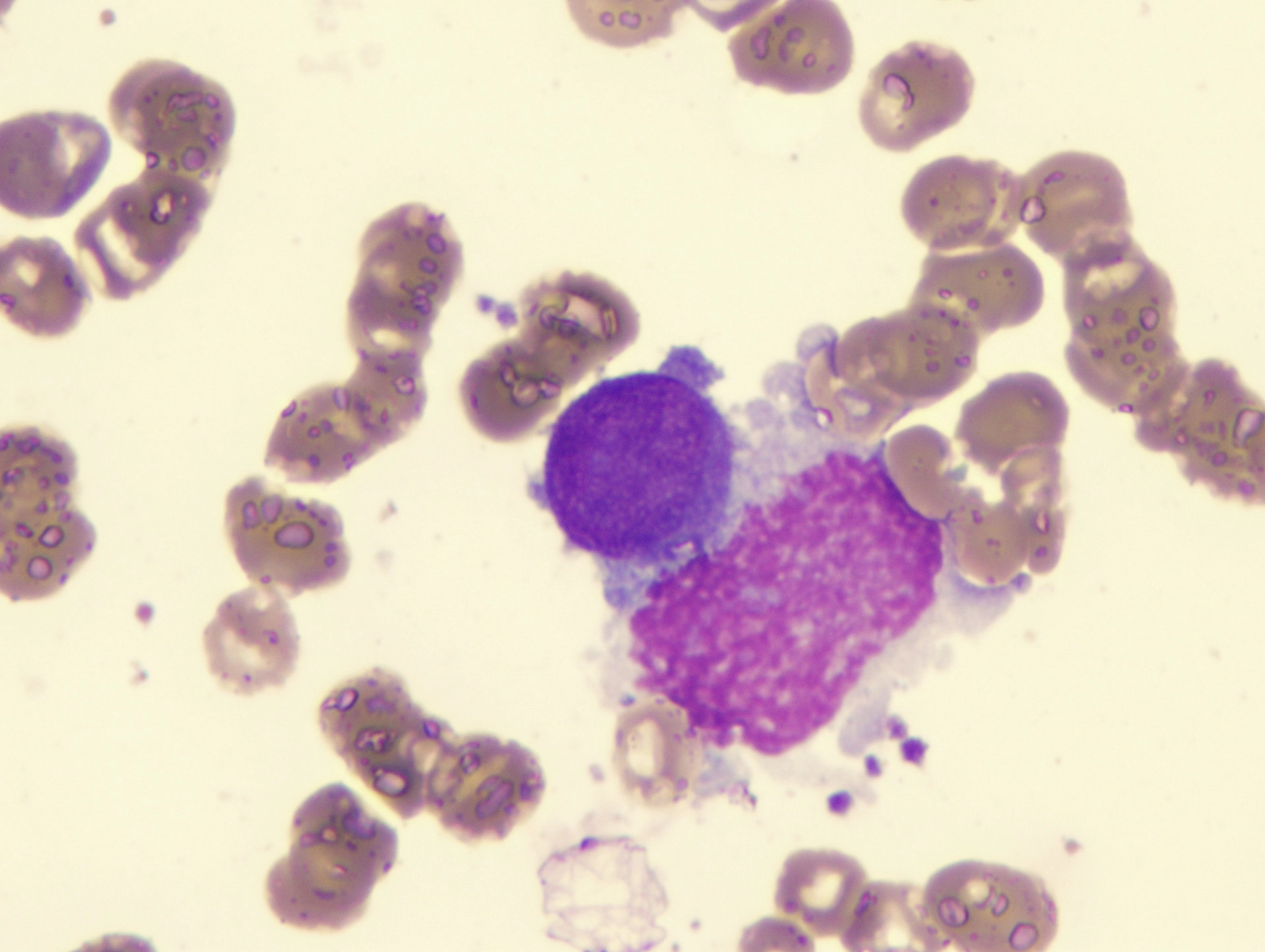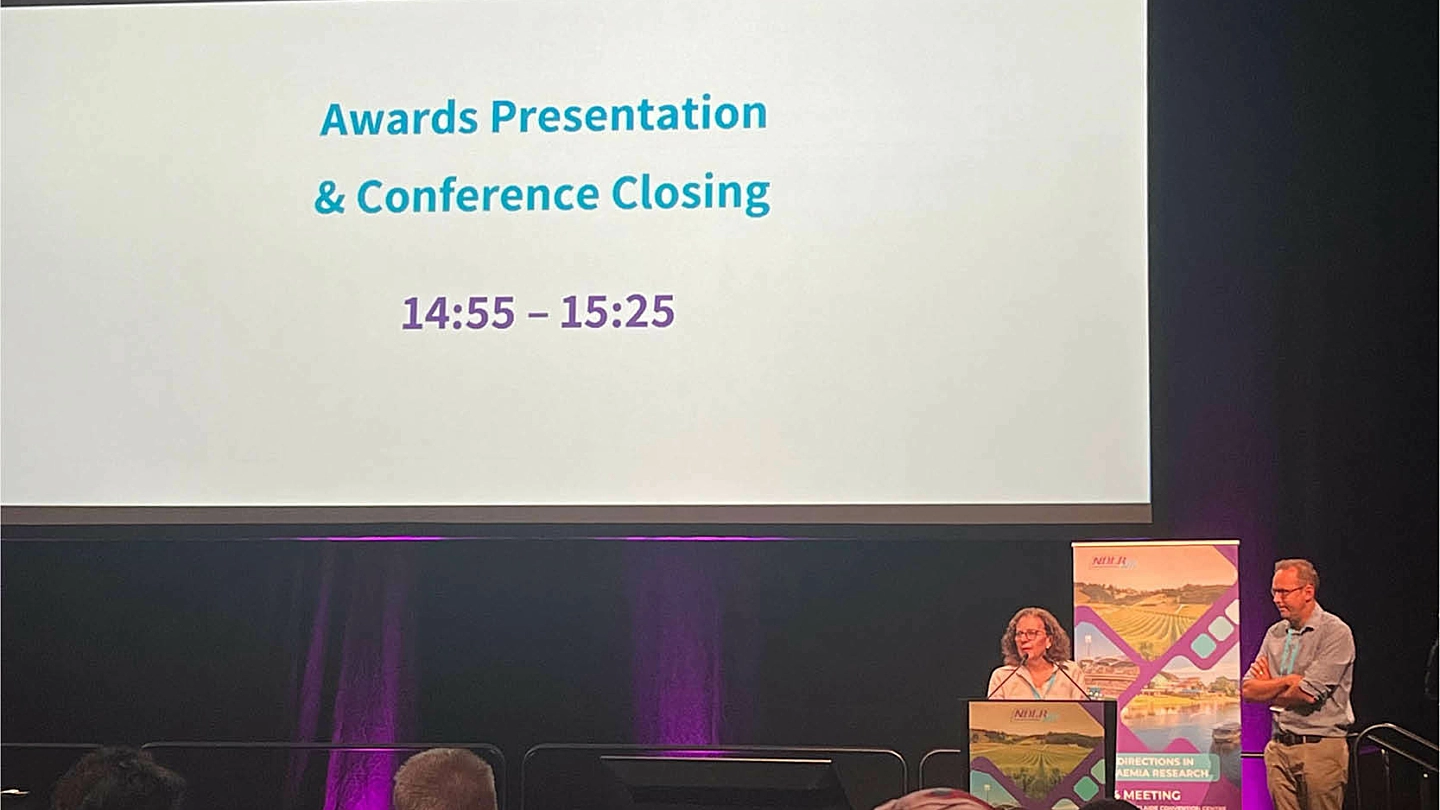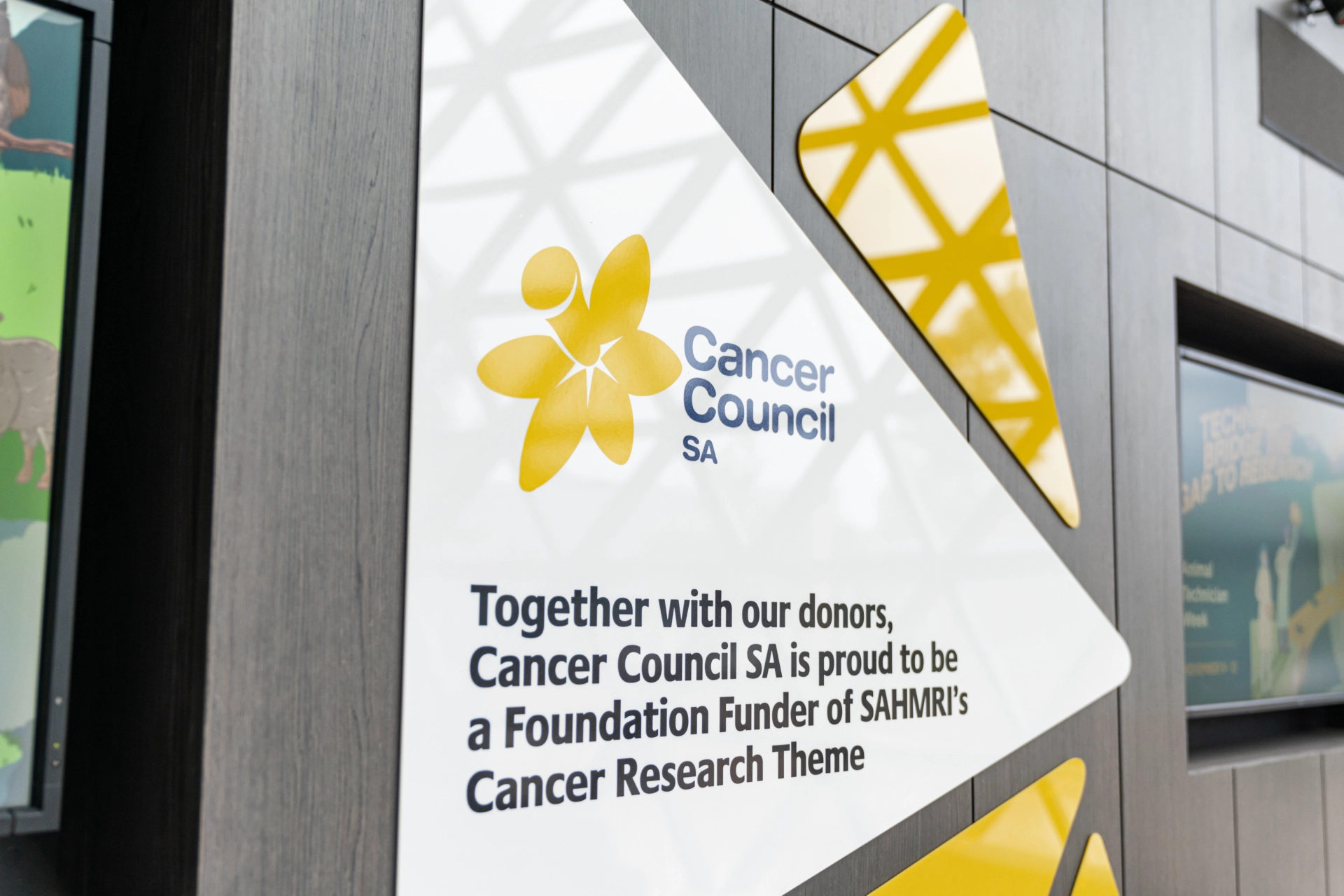Two SAHMRI scientists have been announced as Cancer Council SA Research Fellows, supporting their innovative pursuits in blood cancer research, offering new hope for patients.
Dr Chloe Thompson-Peach and Dr Jacqueline Noll are among the recipients of the 2025 Cancer Council SA Research Fellowship Program, which is investing nearly $1.3 million into vital cancer research across South Australia.
The program supports outstanding early and mid-career researchers, helping to strengthen the state's cancer research workforce in the push for more effective treatments.
Dr Thompson-Peach is focusing her research on developing new therapies for myelofibrosis, a rare blood cancer, with an emphasis on CALR-driven myelofibrosis, which currently has no effective treatments.
“The ultimate goal is to develop a therapy and actually get our therapy rolled out to patients that are suffering from the disease,” Dr Thompson-Peach said.
“It would be amazing if we could stop disease progression, or even cure it.”
Dr Thompson-Peach’s research builds on her expertise in cancer genetics and precision medicine. Since earning her PhD in 2020, she’s been at the forefront of identifying novel genetic mutations linked to breast and ovarian cancer. Now she’s committed to understanding how specific CALR mutations impact disease severity and designing therapies to selectively target mutated cells while preserving healthy ones.
“This funding makes such a massive difference to my research, which has tremendous potential to roll on and help patients and families who are going through these illnesses,” Dr Thompson-Peach said.
Dr Noll’s research centres around multiple myeloma and its connection to an asymptomatic condition known as monoclonal gammopathy of undetermined significance (MGUS). Only a small fraction of people with MGUS develop multiple myeloma, and there’s currently no way to predict who will or won’t.
Her team has identified an enzyme critical to myeloma tumour development in preclinical models. By investigating how this enzyme contributes to tumour formation, Dr Noll aims to determine whether it could serve as a therapeutic target to slow or prevent the progression from MGUS to multiple myeloma. Her research could also pave the way for more precise diagnostic tools to identify high-risk patients earlier.
“Understanding the mechanisms that drive multiple myeloma progression is crucial,” Dr Noll said.
“If we can intervene at the right stage, we may be able to significantly delay or even prevent the transition from MGUS to myeloma, giving patients better outcomes and quality of life.”
This vital funding support is a testament to SAHMRI’s ongoing partnership with Cancer Council SA to advance vital research dedicated to improving the lives of those living with cancer.





